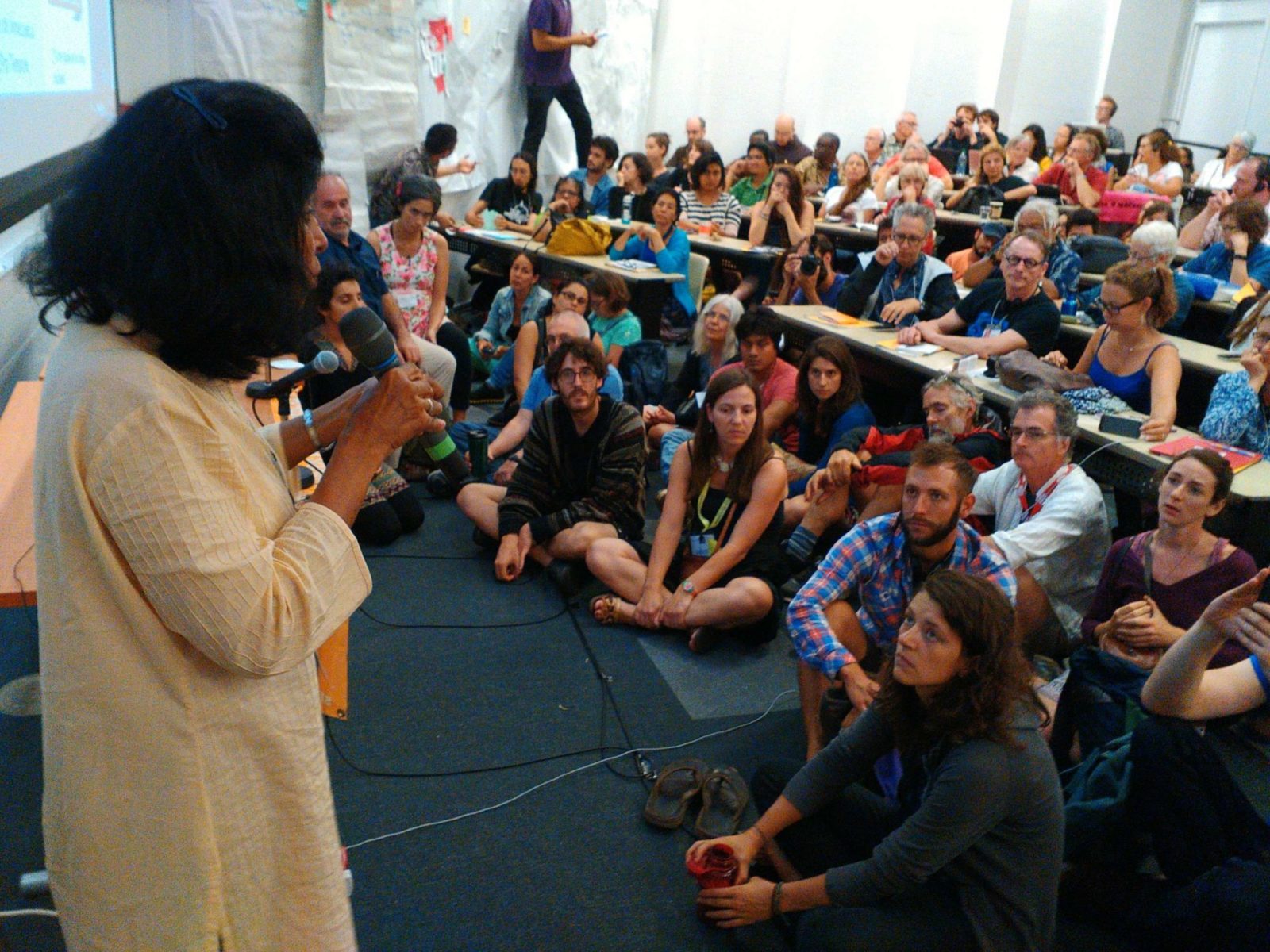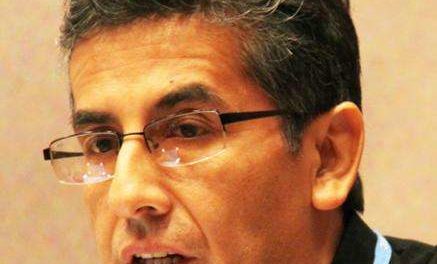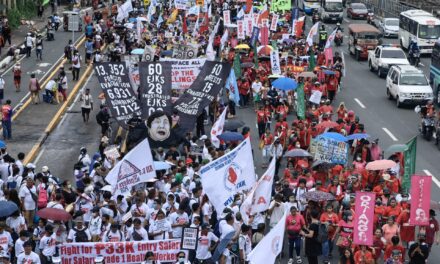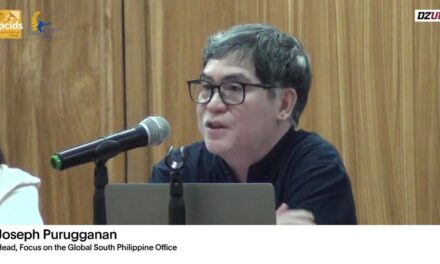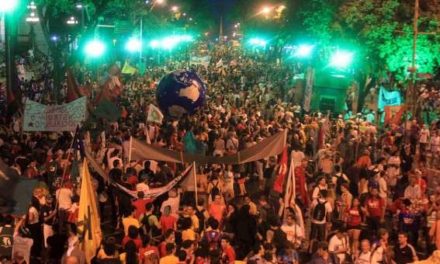From 9-14 August 2016, Joseph Purugganan, our Philippines Head of Office, and Shalmali Guttal, our Executive Director, represented Focus on the Global South at the World Social Forum in Montreal, Canada. Joseph reports on the discussions that we participated in, the partners we met and solidarity events we joined.
Photos by Joseph Purugganan unless indicated
The World Social Forum (WSF) 2016 in Montreal is the 12th edition of the WSF. According to the WSF 2016 Secretariat, a total of 35,000 people participated in this year’s event from 125 countries. The various events were conducted all around Montreal, but mainly in the campuses of the University of Quebec at Montreal (UQAM), and the McGill University. However, a big issue in this year's WSF was the large number of people (particularly from the Global South) who were prevented from participating due to visa rejections. The WSF Secretariat estimates that 60% of the visa application demands were refused by the Canadian Government.
Shalmali and myself participated and spoke in a number of events throughout the week:
August 9
Shalmali spoke in two panels at the Water Justice Meeting ("Water for Life not for Profit"): one on water justice struggles in Asia and another where we both spoke on neoliberalism and threats to water justice.
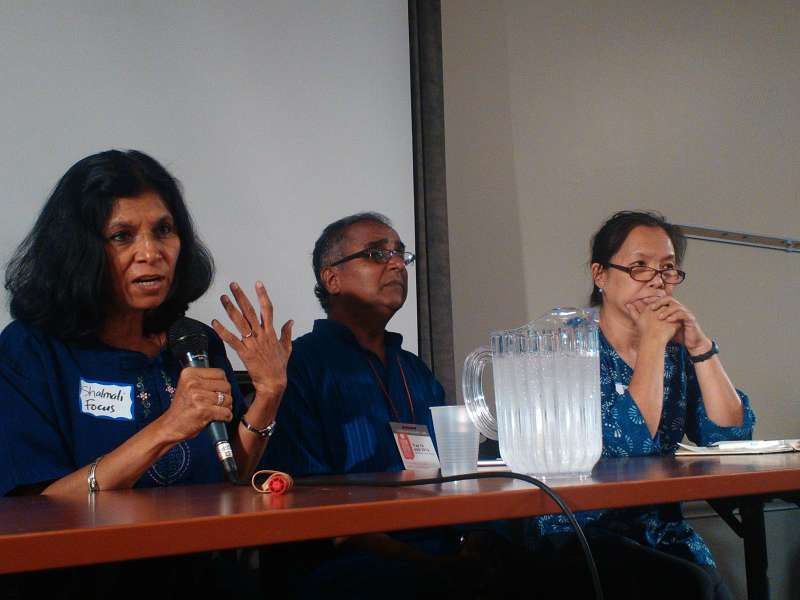
At around midday I participated in the Climate Space meeting to discuss the CS events at the WSF, while Shalmali went to the EDGE partners meeting.
In the afternoon, I went to the first session of the Trade-Climate Convergence assembly, where participants were asked to discuss and comment on the proposed narrative linking work and campaigns around three main fronts: campaigns against free trade and investments, extractivism and climate change. and corporate power (see convergence programme here)
Later that afternoon, both Shalmali and I participated in the Peoples March to formally open the WSF. According to the Secretariat, a total of 15,000 people joined the opening march.
August 10
We both participated in the Systemic Alternatives discussion on Post-Extractivist Societies – Shalmali moderated this session while I spoke on the panel together with Pablo Solon (former Executive Director of Focus and now of Fundacion Solon), Genevieve Azam (Attac France) and Stephen Bartlett (La Via Campesina).
Photo by Shalmali Guttal
My presentation focused on (1) the role of mining and extractive industries in sustaining growth in Asia, (2) mining in the Philippines and the demands for policy reforms; and (3) what the demand towards a post-extractivist society implies for the Philippines. I summed up my presentation with this statement:
"Given this baseline, I think a vision of post-extractivist world would still have to hurdle all of these more urgent issues; and should perhaps be viewed as a pathway that we should be working towards; this way we look at the incremental changes in policies as steps that move us forward along this pathway."
In the afternoon, Shalmali spoke at the CIDSE event on Laudato Si, while I spoke at the discussion Climate Change: Crisis or Collapse organised by the Climate Space. My presentation zeroed in on the Philippine experience on disaster capitalism and was based on the paper we produced two years ago with my colleagues Clarissa V. Militante and Mary Ann Manahan, which we will publish this year. The panel included: Pablo Solon (Fundacion Solon), Tom Kucharz (Ecologistas en Accion), Dena Hoff (La Via Campesina), Yussuf (La Via Campesina), Tony Clarke (Polaris Institute), Ronnie Hall (GFC, CIC) and Jaron Browne (Grassroots Global Justice Alliance). The Critical Information Collective has published my presentation on their website.
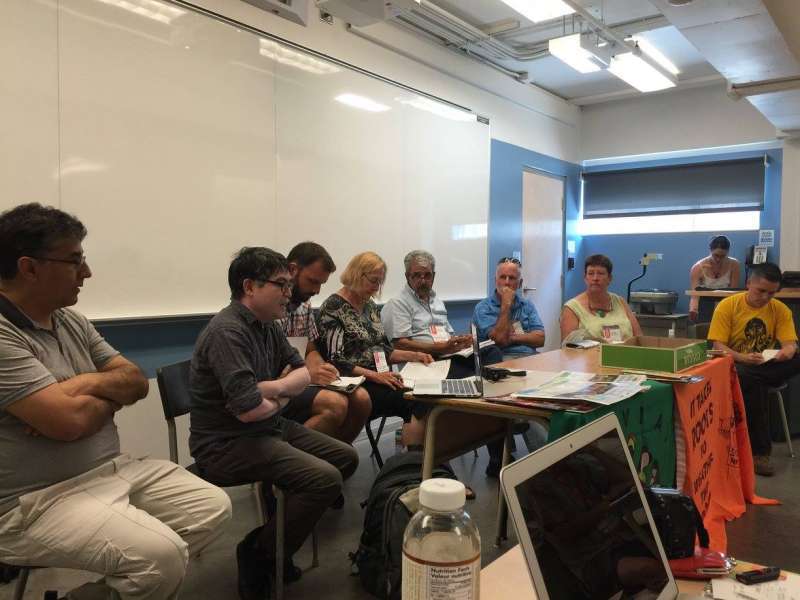
Photo courtesy of Climate Space/Global Forest Coalition
In the evening, Shalmali and I both spoke at the People and Planet before Profit: Voices of Resistance and Alternatives, a political-artistic event that combined short messages from 15 activists from around the globe, with cultural presentations.
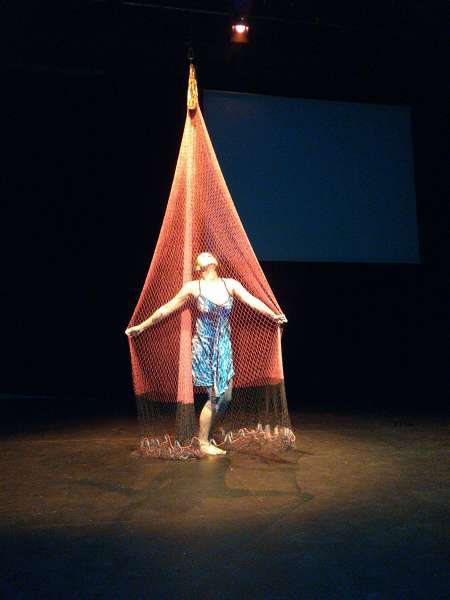
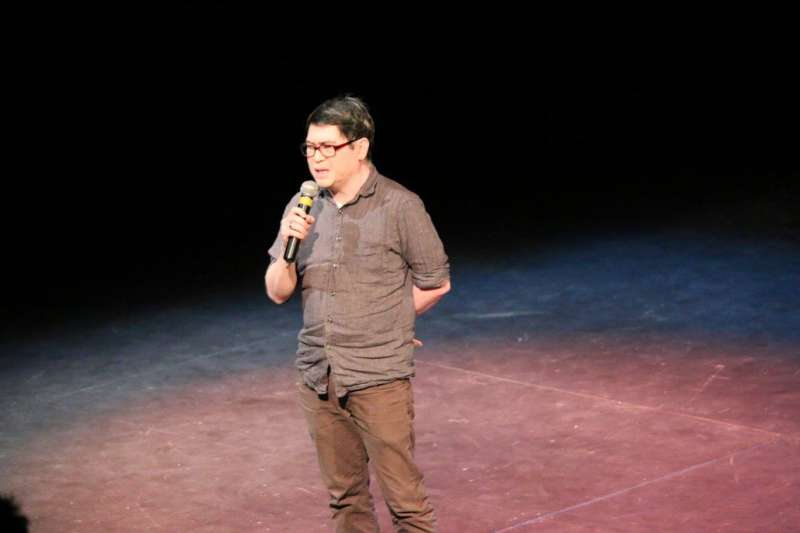
Photo courtesy of Grassroots Global Justice
Shalmali spoke about the struggles for land and territory across Asia while I spoke about the people whose voices have been silenced by the culture of fear and violence across our region. I mentioned Juvy Capion and Gloria Capitan, the Kidapawan farmers, Sombath Somphone and Jonas Burgos.
After the event, Shalmali and I went to the meeting of the Global Campaign to Promote Peoples Sovereignty and Dismantle Corporate Power where plans for the binding treaty campaign and peoples’ treaty were discussed, among others.
August 11
Peoples Sovereignty versus the Architecture of Impunity- Focus was one of the co-organizers together with the Transnational Institute (TNI) of this discussion on the Global Campaign. I shared about the strategy of building alliances using the issue of Investor-State Dispute Settlement (ISDS).
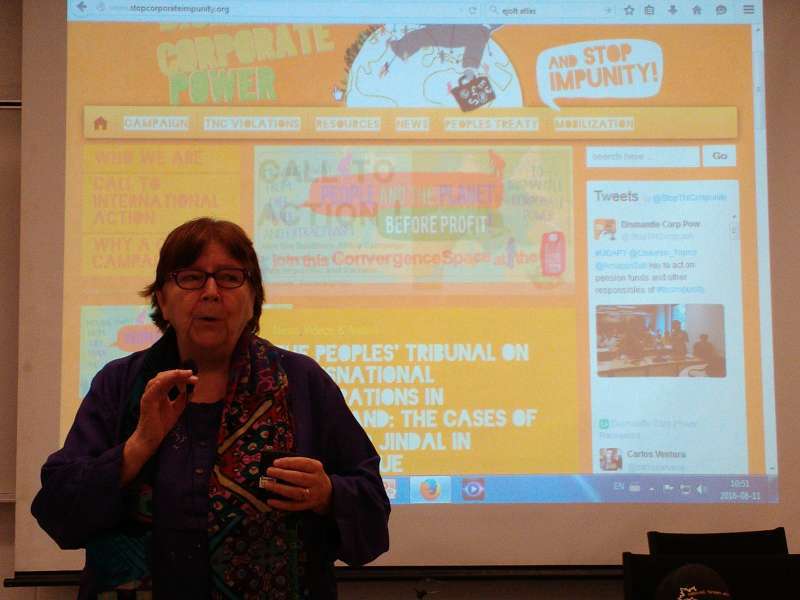
Shalmali spoke at the event Engaging with, Confronting and Challenging State Power organised by Systemic Alternatives and Intercoll in the afternoon while I spoke at the Corporate Rights or Human Rights? The case of ISDS workshop, which we had co-organized with Inter Pares.
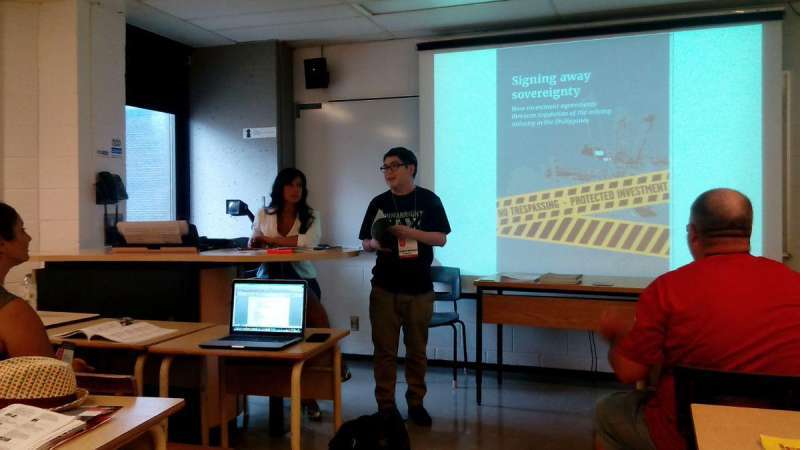
Photo courtesy of Monica Vargas (from twitter)
August 12
Shalmali spoke at the forum Building a Movement to Fight Inequality while I participated in the workshop What are our strategies after Paris Climate Agreement organised by the Climate Space.
We participated in a demonstration against the Visa refusals at the building of the Services Canada Centre.
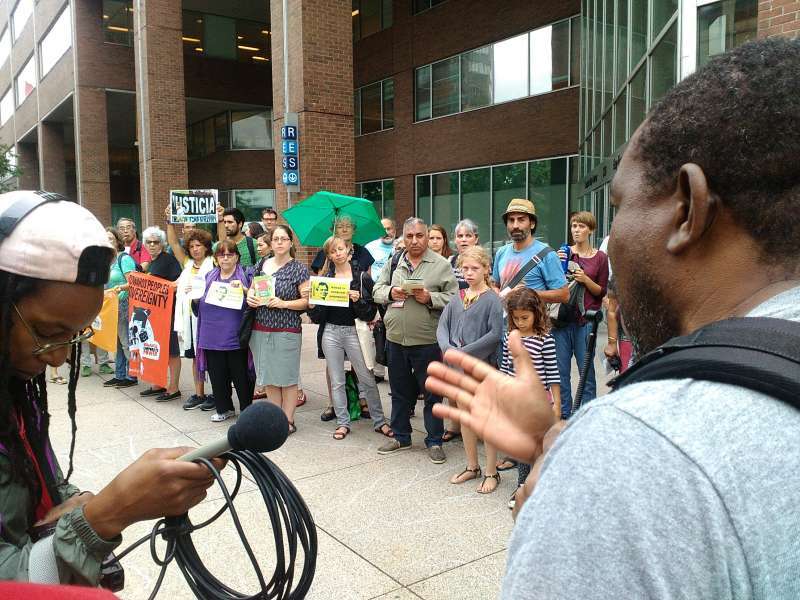
We also took the opportunity to contribute to the Where is Sombath? initiative asking friends at the WSF to pose with the Where is Sombath placard. See the Sombath Initiative Facebook page for pictures.
Both of us then spoke at the Convergence assembly "People and the Planet before Profit: moving away from free trade and extractivism to dismantle corporate power.
In the evening, Shalmali was one of the panelists in the jam-packed event Women's Struggles around the World panel organised by the AQOCI (Quebec association for international cooperation). The other panelists were Mama Koite from Mali, Itzel Gonzales from Mexico, and Bertita Caceres from Honduras.
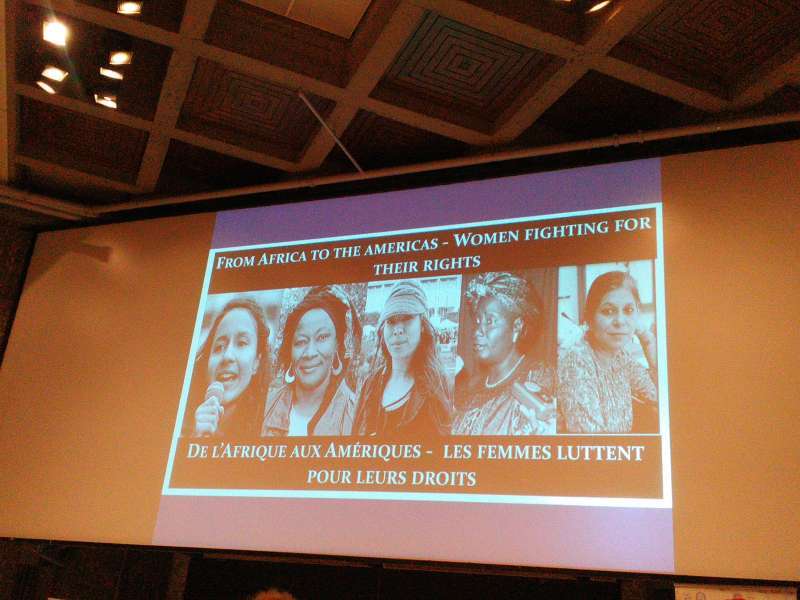
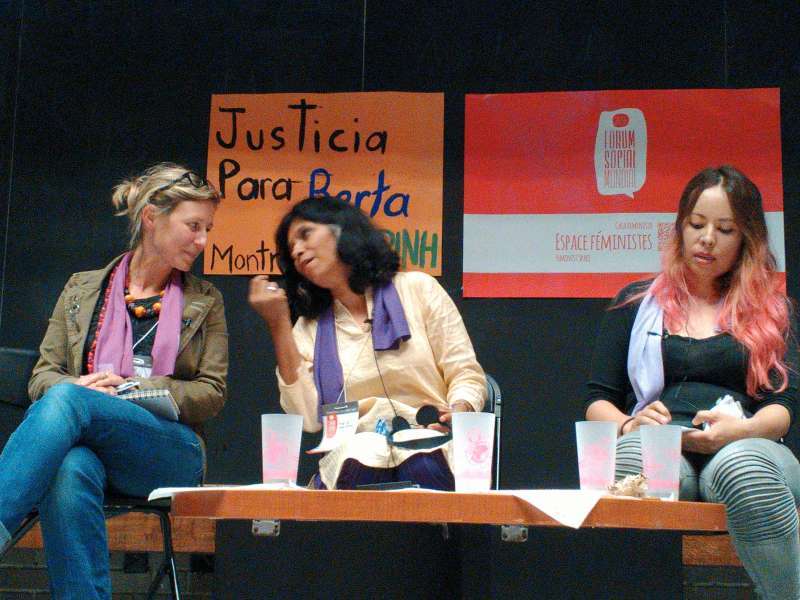
After the event, Shalmali and I spoke with Bertita and Laura Caceres (daughters of slain indigenous leader Berta Caceres) from Honduras. We discussed our End Impunity Campaign and the possibilities for collaboration and support.
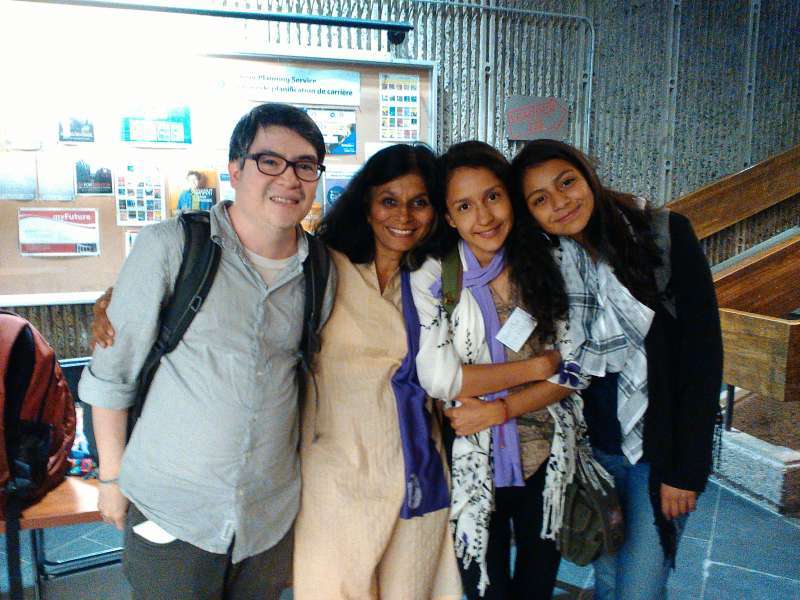
Finally, we met with our partners from the Systemic Alternatives Project, Pablo Solon, Genevieve Azam (Attac-France) and Christophe Aguiton, to discuss project activities, including a book on Systemic Alternatives and a proposed meeting in Paris in December 2016.

